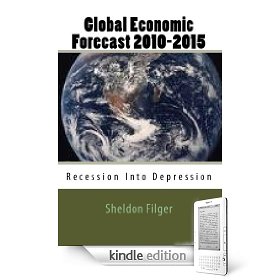Iceland Voters Reject Foreign Depositors Bailout At Their Expense For A Second Time
Article first published as <a href=’http://blogcritics.org/politics/article/iceland-voters-reject-foreign-depositors-bailout/’>Iceland Voters Reject Foreign Depositors Bailout At Their Expense For A Second Time</a> on Blogcritics.
The politicians in Iceland, pressured by the British and Dutch governments, apparently believe that if at first you don’t succeed, try again. Already the Icelandic voters rejected an earlier referendum on repaying $5.8 billion borrowed by the governments of the UK and the Netherlands to repay Dutch and British citizens who lost their deposits at the privately-owned Landsbanki. This Icelandic bank had 340,000 depositors in the United Kingdom and Holland, swayed by its “Icesave” high interest rates. When Landsbanki became insolvent, London and the Hague decided to make those 340,000 depositors whole by covering their losses, and then decreed that the citizens of the sovereign state of Iceland were financially responsible for paying back those two foreign governments.
The Icelandic politicians agreed, for the most part, with their colleagues in the UK and the Netherlands. However, they did not take into account the courageous president of Iceland, Olafur Ragnar Grimsson. He used his presidential powers to insist that Iceland’s voters have the opportunity to decide on the scheme to cover the British and Dutch governments’ expenses in the bailout of private depositors whose funds lay in a privately-run ban. In the first referendum, the people of Iceland overwhelmingly rejected the bailout plan. Panicked but undaunted, the politicians in Reykjavik repackaged the taxpayer-funded bank depositors bailout scheme, and mounted a massive propaganda campaign to convince the citizens of the tiny country that taking on massive personal indebtedness to compensate foreign governments in a private commercial matter was a “good” idea, while rejecting the plan would spell economic ruin for Iceland. Again, the voters turned down their scheme, though by a smaller margin. Nevertheless, the 58 percent “no” vote makes it clear even to the politicians in Iceland that the scheme is dead, and there will not likely be a third referendum.
It is believed that the assets of the Landsbanki are worth approximately $5 billion, and would cover the vast majority of the compensation paid out by the UK and Dutch governments. That, however, does not seem to be the point. Ever since the global financial disasters of 2008, politicians throughout the Western world have been insistent on their collective view that public taxpayers must cover all losses incurred by the private banking sector, and assume responsibility for massive quantities of private debt, irrespective of the will of the voters. The firm decision by the people of Iceland and their president provides a glimmer of hope that democracy has not yet been totally demolished by the private banking interests and their obsequious political servants.

